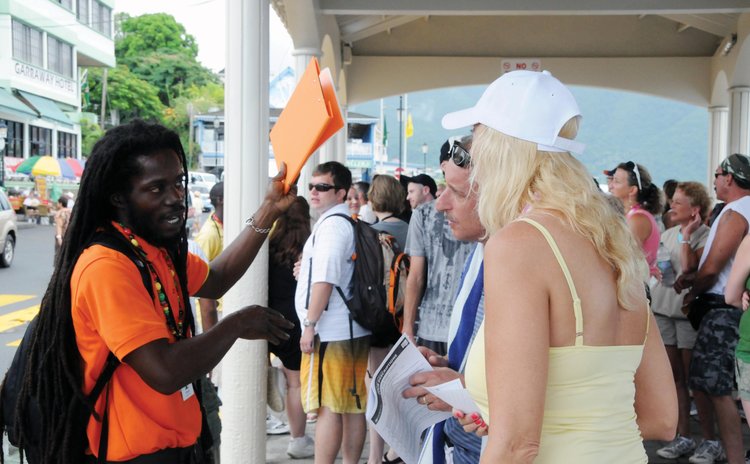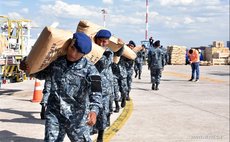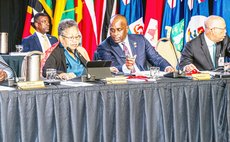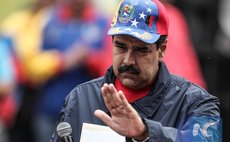Urgent work needed to restore Caribbean tourism in COVID-19 er

To be among the first beneficiaries of a restarted global tourism industry, the present enforced downtime should be used by all actors to position Caribbean countries to compete immediately.
Hoteliers, restaurant owners, shops catering for tourists, should now be considering the protocols they need to institute to make themselves ready for the opening of borders. For instance, will face masks and gloves be part of the uniforms of everyone who interacts with visitors from the time they land and until they depart? In the absence of a vaccine for COVID-19, and for some time after one is developed, visitors and locals will want to be confident that contact will not lead to infection.
Airports and airlines in the region should now be considering how they will cope with even longer check-in times, physical distancing and the necessary health checks that will have to be conducted before passengers are allowed on airplanes. At least basic protocols should be formulated, and training for airport and airline personnel should be undertaken now. The countries that are ahead of this curve will give the greatest incentives to airlines to favour transporting passengers into and out of their airports.
Eventually, no doubt, international agencies will establish rules and procedures for air travel as they did in 2001 after 9/11 and during the SARS outbreak in 2003. But, Caribbean countries need not await international rules before building confidence in their own airports by putting sensible preparatory measures in place, rehearsing their execution and training staff.
Many questions arise from what will be an entirely new situation, and Caribbean governments should be considering them now. Among them are: will governments be willing to accept visitors cleared of COVID-19 by sending countries or will they want to conduct checks themselves? Should it be the latter, clearing passengers for entry after landing, particularly if two or more large aircraft arrive in a cluster, would be a very long and tiresome process unless airports are reconfigured to deal with hundreds of passengers at the same time. Staff for clearing passengers will also have to be significantly increased and trained.
If Caribbean countries will have to ensure that passengers have been tested and cleared for COVID-19 on departure and arrival, work on addressing the enormous challenges should be addressed now. One consideration should be to re-deploy existing public servants from less urgent jobs to these necessary tasks.
Hotels should also be working to make themselves ready for visitors by preparing an environment that would give them comfort that they will not be threatened by COVID-19. This would include mandatory use of masks and gloves by all staff at all times. Physical distancing will also have to be implemented in hotel restaurants and bars; crowded spaces will only return when an effective COVID-19 vaccine has been found and distributed in enough quantities world-wide to restore health security.
The treatment of cruise ship passengers will also pose new and huge demands. Since a significant part of their experience is to wander through capital cities, shopping from vendors, big and small, going to beaches and using local transport, how are they to be checked and cleared for COVID-19? In the season, cruise ship passengers number thousands. If Caribbean health authorities want to ensure that these passengers pose no threat to the local population, measures must be put in place to cope with the issue.
Further, the cruise passengers and the cruise companies will want to be assured that the countries at which they are calling have significantly reduced COVID-19 infections and that they have in operation continuous safeguards against the spread of the disease. Undoubtedly, they will also want to be confident that the health facilities in the country are adequate for treating tourists who may contract the disease.
Therefore, this downtime should not be treated as a period of paralysis. It should be an interval to galvanize action by all in the industry, in each country, to institute measures that will give cruise ship companies, tour operators and airlines comfort that they are ready to protect the health of their visitors. They also need to communicate such actions to the global tourism community. When tourism authorities and hotels claim they are open for business, that claim should be supported by evidence of their readiness to provide an environment of health safety.
Cruise ship companies want to get their ships cruising. They have lost more than US$750 million in the first quarter of this year. Shares in Royal Caribbean, Carnival and Norwegian have dropped by 60 to 70%. They, too, have to restore passenger confidence that their ships will be safe. But, however safe they may make their ships, they will want to be assured that the ports at which they call are also safe.
Airlines have also taken a huge beating. Virgin Airlines is seeking a bailout, or it might never fly again; Airlines for America report that American, Jet Blue and others are already on track to lose US$87 billion in revenue this year; British Airways has had to lay-off 12,000 staff, and is faced with closing down its operations at London Gatwick Airport from which Caribbean flights are served. Global air travel could lose more than US$252 billion this year.
Airlines, too, need to get their planes in the air. They will fly to the countries best prepared to deal with COVID-19. So, the players in the Caribbean tourism industry at local and regional levels should be taking action now.
They will be doing so in an atmosphere of concern about flying and cruising. Any pent-up demand for tourism will be tempered by fear and by cost. Configuring airplanes for safe physical distancing will reduce the number of passengers and consequently increase the cost of travel.
Both North America and Europe are now facing huge job losses and millions of people are forced to spend their savings. Only the well-off will easily be able to afford leisure travel in the immediate future. COVID-19 is forecast to cause a fall in tourism receipts globally of 20-30% (or US$450 billion) this year. By comparison, during the global recession of 2008 international tourist arrivals declined by only 4%, while the 2003 SARS outbreak resulted in a decline of a mere 0.4%.
The problem is real and alarming. Building confidence in tourism capacity must start now, if the Caribbean will be ready to take advantage of borders opening.
Responses and previous commentaries: www.sirronaldsanders.com
(The writer is Ambassador of Antigua and Barbuda to the United States and the Organisation of American States. He is also a Senior Fellow at the Institute of Commonwealth Studies at the University of London and at Massey College in the University of Toronto. The views expressed are entirely his own)




